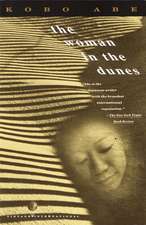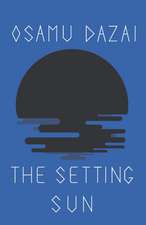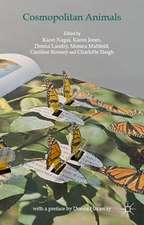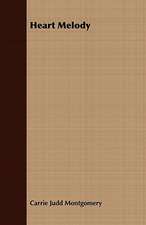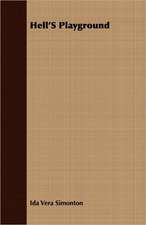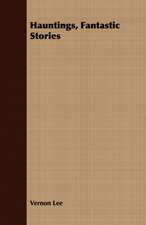The Face of Another
Autor Kobo Abe Traducere de E. Dale Saundersen Limba Engleză Paperback – 31 ian 2003
His only entry back into the world is to create a mask so perfect as to be undetectable. But soon he finds that such a mask is more than a disguise: it is an alternate self–a self that is capable of anything. A remorseless meditation on nature, identity and the social contract, The Face of Another is an intellectual horror story of the highest order.
| Toate formatele și edițiile | Preț | Express |
|---|---|---|
| Paperback (2) | 57.90 lei 22-33 zile | +20.02 lei 7-13 zile |
| Penguin Books – 27 sep 2006 | 57.90 lei 22-33 zile | +20.02 lei 7-13 zile |
| Vintage Books USA – 31 ian 2003 | 84.75 lei 3-5 săpt. |
Preț: 84.75 lei
Nou
Puncte Express: 127
Preț estimativ în valută:
16.22€ • 17.02$ • 13.46£
16.22€ • 17.02$ • 13.46£
Carte disponibilă
Livrare economică 20 martie-03 aprilie
Preluare comenzi: 021 569.72.76
Specificații
ISBN-13: 9780375726538
ISBN-10: 0375726535
Pagini: 256
Dimensiuni: 133 x 204 x 14 mm
Greutate: 0.2 kg
Editura: Vintage Books USA
ISBN-10: 0375726535
Pagini: 256
Dimensiuni: 133 x 204 x 14 mm
Greutate: 0.2 kg
Editura: Vintage Books USA
Extras
AT LAST you have come, threading your way through the endless passages of the maze. With the map you got from him, you have finally found your way to my hideaway--the first room at the top of the creaking, harmonium-pedal stairs. You've mounted with somewhat shaky steps. You hold your breath and knock. Why is there no answer? Instead, only a young girl comes running like a kitten. She is supposed to open the door for you. You ask if there isn't a message; the girl doesn't answer but smiles and runs away.
You peep in, looking for him. But he isn't there, not a trace is left; and an odor of ruin floats in the air. A dead room. Expressionless walls look back at you; you shudder. As you are about to go, though with a feeling of guilt, the three notebooks on the table, together with the letter, catch your eye, and you realize that you too are trapped at last. No matter how loathesome the thoughts that well up in you, you cannot resist the temptation. You have torn open the envelope with trembling hands, and now you are beginning to read the letter.
You are probably humiliated and angry. But I should like you to fix your eyes on the paper, though you don't want to, and go on reading. I want so desperately for you to come safely through this moment and make a step toward me. Have I lost to him or has he lost to me? Either way, my masked play is over. I have murdered him, and I proclaim myself the criminal. I shall confess everything, entirely. Whether you act out of generosity or selfishness, I want you to go on reading. He who has the right to sit in judgment also has the obligation to listen to the defendant's statement.
You may be suspected, of course, of false complicity if you simply abandon me as I kneel here. Well, sit down; relax. If the air in the room is bad, open the window at once. A teapot and cups are in the kitchen if you want them. As soon as you settle down, the place will change instantaneously from a hideaway at the end of a maze into a court of law. To make the end of my masked play more real, I have decided to go on waiting, while you look through the deposition. For the time being, just remembering him keeps me from boredom.
Well then, let's trace back the skein of my hours. Perhaps it was some time during the morning, about three days ago from your "now." That night a sticky, rain-laden wind kept badgering the window in its frame. Though it had been too warm during the day, we missed the heat when evening came. According to the papers it was supposed to turn cold again, but the days had obviously grown longer. Soon, when the rains let up, it would be summer. I was worried as I thought about it. In my present state I was like wax, limp from the heat. Just thinking of the ceaselessly shining sun made my skin break out in blisters.
Then I thought I would like to settle the matter somehow before summer came. According to the long-term forecast, a continental high-pressure system would begin to spread, and apparently for the next three or four days there would be summery weather. In short, it would be perfect if, within three days, I could finish my preparations for meeting you and run the story right on after this letter. But three days could scarcely be considered enough. For, as you can see, the statement is a record stretching over a whole year and filling three notebooks the size of folios. It will be a big job to finish up a notebook a day to my satisfaction--rewriting, deleting, and revising. I had braced myself for the task and come directly back today two or three hours earlier than usual, bringing a midnight snack of meat dumplings liberally spiced with garlic.
But vexingly enough, the result was simply that I was again made aware of the utter insufficiency of time. Actually, when I skimmed through the notebooks, I was dissatisfied with the tone, which smacked too much of apology. It was extraordinary for me to be so irked by this soaking night, although it would make anyone gloomy. I did not intend to deny that the final act was rather wretched, but I continued confident that at least I was always alert in my own way. Without that confidence, how could I possibly go on tirelessly writing such notebooks, which might constitute either support for my alibi or proof of my guilt? I didn't mean I would not admit defeat. But I still firmly believe that the maze in which I was caught is the ultimate, the logical tribulation. Yet, contrary to expectations, the notebooks continued to bawl piteously, like some penned-up tomcat. I wondered if I should work them over until I was satisfied with their smoothness, forgetting the three-day limit.
No. That is enough. I can't stand the feeling of having a piece of half-chewed gristle stick in my throat at the very moment I'm resigned to confess everything. The sections that seem to shriek are all trivial, so I shall be satisfied if I can just get you to read them. Your main irritations are electric drills, the sound of scraping on plate glass, and cockroaches; but you can hardly say that these are the essentials of life. You associate electric drills with the dentist, I imagine; but the other two are strange items which I cannot describe other than as psychological hives. I have never yet heard of hives being fatal.
Well, let's drop it for now and wind things up. It serves no purpose to pile justifications on justifications. It is more important that you should go on reading the letter--my time quite overlaps with your present--that you should keep on reading the notebooks . . . without giving up . . . to the last page, when I will catch up with your time.
(Now you're relaxed, aren't you? Yes, yes. The tea's in the squat green can. The water's already boiled and now in the thermos jug, so go ahead and use it.)
THE BLACK NOTEBOOK
BY THE WAY, the order of the notebooks is by color: black, white, and grey. There is no relationship, of course, between colors and content. I chose haphazardly, merely to distinguish among notebooks.
FIRST of all, I wonder if I should start with the hideaway. It makes little difference where I do start. But it's easy to begin talking about that day. It was then, about two weeks ago, that I was to leave the city for a week on business. It was the first trip I had planned since leaving the hospital; perhaps it was also a day that greatly impressed you. Ostensibly, the purpose of the trip was to inspect progress in constructing a printing-ink factory in Osaka. But this was a pretext. Actually on that day, I shut myself up in my room at the S-- Apartments, putting the finishing touches to my plans. Here is a sample from the diary entry for that day:
May 26. Raining. I went to visit the S-- Apartments I located through a newspaper advertisement. A child, playing in the front garden, broke out crying as soon as she saw my face. But geographically the location is good and the arrangement of the rooms almost ideal, so I shall settle on this one. There is a piercing, pungent smell of new wood and fresh paint. The room next door seems to be vacant. Something tells me I could probably rent that one too. . . .
But at the S-- Apartments I did not use another name, nor did I try to conceal my identity. Perhaps this appears indiscreet, but I had my own scheme. Having gone this far with the deception about my face, there was nothing to be done about it. Actually, some little girl about primary-school age, playing in front of the entryway, had taken one look at me-- I must have appeared like something out of a nightmare--and begun sobbing. Of course, the superintendent was stupidly affable, doubtless because it was his business....
No, the affability wasn't confined to the superintendent . . . Unfortunately, almost everybody I met gave me, ungrudging, only affability. As long as things did not go any further, everyone put up a fine show. And that was to be expected. If they did not want to look me square in the face, at least they had to be affable, I suppose. Anyway thanks to that, I was able to avoid unnecessary inquisitiveness. Shut off by a wall of affability, I was always completely alone.
Perhaps because the S-- Apartments had been so recently constructed almost half the eighteen units were still empty. Although I did not request it, the superintendent showed me to the farthest room on the second floor, next to an emergency stairway. That's the long and short of it. Of course, his picking out that particular unit for me was incontestably valuable. The bathroom was ordinary, not first-class; a desk was provided along with two chairs; and there was a terrace-like bay window which the other rooms did not have. Furthermore, a parking lot with four or five places was located at the bottom of the emergency stairway, and from there one could get out directly by a side driveway. This was quite useful too. I had to be prepared from the start, so I immediately paid a three-months' deposit. At the same time, I told the superintendent to buy bedding from a near-by shop and have it delivered. The man was increasingly less able to conceal his delight and kept on prattling endlessly about the sunniness of the place and the excellence of the ventilation. When those subjects of conversation were exhausted, he would go on jabbering about himself. But when he held out the key to me, it slipped from his grasp--luckily--and fell to the floor, making a sharp clatter. With an abashed expression, he hastily tore the seal from the gas-inlet valve and departed. Thank Cod! If false veneer always came off so easily, what a relief it would be.
IT HAD already become so dark I could not count the fingers on the hand I held before my face. The room, unused to human habitation, was cold and unaffable. But this was better than an affable man. I had grown terribly familiar with darkness since the event in question. How wonderful it would be, frankly, if everybody in the world would suddenly lose his sight or forget the existence of light. Immediately, there would be agreement about form. Everybody would accept the fact that a loaf of bread is a loaf of bread whether triangular or round. The girl a little while ago would have kept her eyes shut and listened to my voice. If she had, perhaps we could have become friendly and I could have taken her to the playground and we could have eaten ice cream together. Just because there was light, she heedlessly thought that a triangular loaf of bread was not bread but a triangle. This thing called light is itself transparent, but it apparently changes into something nontransparent.
But there is light, actually, and darkness is at most a stay of execution with a definite time limit. When I opened the window, a rain-drenched wind blew in, like black vapor. Without thinking, I inhaled it; I took off my sunglasses and wiped away the tears, whereupon the tops of telephone poles and the wires to the shops set back along the main street and the line of the eaves caught the light from the passing cars and shone dimly like traces of chalk left on a blackboard.
There was a sound of footsteps approaching along the hallway. With a gesture that had become habit, I readjusted my glasses. It was a man delivering the bedding I had ordered. I stuck the money under the door and asked him to leave the bedding in the hallway.
Somehow it seemed that everything was ready for the start. When I took off my coat and opened the closet, I found a mirror attached to the back of the door. I took off my glasses again, removed my mask, and, looking in the mirror, began to undo the bandages. The three layers of cloth were swollen with sweat and felt twice as heavy as when I had put them on in the morning.
As I removed the bandages, a leech-like mass crept out across my face . . . the keloid scars, swollen and distended, red and black intertwining. . . . How repulsive! Since this was daily routine, I should be used to it soon.
I was vexed even more by my unwarranted surprise. When I thought about my feeling, it seemed baseless, irrational. Why did one have to put up a hue and cry about anything so trifling as the skin on one's face, which, after all, was only a small part of the human capsule? Such prejudice and set ideas, of course, are not especially strange. For example, belief in magic . . . racial prejudice . . . groundless fear of snakes (or the morbid terror of cockroaches that I mentioned in my letter). . . .
While such a situation would be understandable in a pimply adolescent who lives in visions, it was ridiculous for me, the section head of a respectable laboratory, moored securely to this world by an anchor-like weight, to be afflicted by psychological hives. I realized there was no particular reason for my abhorrence of the leech-like scars, but I was unable to stop my suffering, although fed up with the whole thing.
Of course, I intended to try. Rather than run aimlessly away, it would be best, I suppose, to face the situation squarely and get used to it once and for all. If I made nothing of it, then surely no one else would either. With this thought in mind, and of my own accord, I had made my face the subject of conversation at the Institute. I had compared myself, for example, to the masked monsters of television, deliberately exaggerated. I had stressed the advantages of seeing-without-being-seen--since my expression was inscrutable to others--and appeared amused by the whole thing. To accustom others to my face was the best short cut to getting used to it myself.
The stratagem seemed to work. I was then able to get along at the laboratory with no sense of constraint. There is more to those popular masked monsters, too, than appears; I began to understand why they turn up over and over again in comic books and on television. My mask itself--were it not for the scars underneath, spreading like webs--was comfortable enough. If covering our bodies with clothes represents a cultural step forward, there is no guarantee that in the future masks will not be taken equally for granted. Even now they are often used in important ceremonies and festivals. I do not quite know how to put it, but I wonder if a mask, being universal, enhances our relations with others more than does the naked face.
You peep in, looking for him. But he isn't there, not a trace is left; and an odor of ruin floats in the air. A dead room. Expressionless walls look back at you; you shudder. As you are about to go, though with a feeling of guilt, the three notebooks on the table, together with the letter, catch your eye, and you realize that you too are trapped at last. No matter how loathesome the thoughts that well up in you, you cannot resist the temptation. You have torn open the envelope with trembling hands, and now you are beginning to read the letter.
You are probably humiliated and angry. But I should like you to fix your eyes on the paper, though you don't want to, and go on reading. I want so desperately for you to come safely through this moment and make a step toward me. Have I lost to him or has he lost to me? Either way, my masked play is over. I have murdered him, and I proclaim myself the criminal. I shall confess everything, entirely. Whether you act out of generosity or selfishness, I want you to go on reading. He who has the right to sit in judgment also has the obligation to listen to the defendant's statement.
You may be suspected, of course, of false complicity if you simply abandon me as I kneel here. Well, sit down; relax. If the air in the room is bad, open the window at once. A teapot and cups are in the kitchen if you want them. As soon as you settle down, the place will change instantaneously from a hideaway at the end of a maze into a court of law. To make the end of my masked play more real, I have decided to go on waiting, while you look through the deposition. For the time being, just remembering him keeps me from boredom.
Well then, let's trace back the skein of my hours. Perhaps it was some time during the morning, about three days ago from your "now." That night a sticky, rain-laden wind kept badgering the window in its frame. Though it had been too warm during the day, we missed the heat when evening came. According to the papers it was supposed to turn cold again, but the days had obviously grown longer. Soon, when the rains let up, it would be summer. I was worried as I thought about it. In my present state I was like wax, limp from the heat. Just thinking of the ceaselessly shining sun made my skin break out in blisters.
Then I thought I would like to settle the matter somehow before summer came. According to the long-term forecast, a continental high-pressure system would begin to spread, and apparently for the next three or four days there would be summery weather. In short, it would be perfect if, within three days, I could finish my preparations for meeting you and run the story right on after this letter. But three days could scarcely be considered enough. For, as you can see, the statement is a record stretching over a whole year and filling three notebooks the size of folios. It will be a big job to finish up a notebook a day to my satisfaction--rewriting, deleting, and revising. I had braced myself for the task and come directly back today two or three hours earlier than usual, bringing a midnight snack of meat dumplings liberally spiced with garlic.
But vexingly enough, the result was simply that I was again made aware of the utter insufficiency of time. Actually, when I skimmed through the notebooks, I was dissatisfied with the tone, which smacked too much of apology. It was extraordinary for me to be so irked by this soaking night, although it would make anyone gloomy. I did not intend to deny that the final act was rather wretched, but I continued confident that at least I was always alert in my own way. Without that confidence, how could I possibly go on tirelessly writing such notebooks, which might constitute either support for my alibi or proof of my guilt? I didn't mean I would not admit defeat. But I still firmly believe that the maze in which I was caught is the ultimate, the logical tribulation. Yet, contrary to expectations, the notebooks continued to bawl piteously, like some penned-up tomcat. I wondered if I should work them over until I was satisfied with their smoothness, forgetting the three-day limit.
No. That is enough. I can't stand the feeling of having a piece of half-chewed gristle stick in my throat at the very moment I'm resigned to confess everything. The sections that seem to shriek are all trivial, so I shall be satisfied if I can just get you to read them. Your main irritations are electric drills, the sound of scraping on plate glass, and cockroaches; but you can hardly say that these are the essentials of life. You associate electric drills with the dentist, I imagine; but the other two are strange items which I cannot describe other than as psychological hives. I have never yet heard of hives being fatal.
Well, let's drop it for now and wind things up. It serves no purpose to pile justifications on justifications. It is more important that you should go on reading the letter--my time quite overlaps with your present--that you should keep on reading the notebooks . . . without giving up . . . to the last page, when I will catch up with your time.
(Now you're relaxed, aren't you? Yes, yes. The tea's in the squat green can. The water's already boiled and now in the thermos jug, so go ahead and use it.)
THE BLACK NOTEBOOK
BY THE WAY, the order of the notebooks is by color: black, white, and grey. There is no relationship, of course, between colors and content. I chose haphazardly, merely to distinguish among notebooks.
FIRST of all, I wonder if I should start with the hideaway. It makes little difference where I do start. But it's easy to begin talking about that day. It was then, about two weeks ago, that I was to leave the city for a week on business. It was the first trip I had planned since leaving the hospital; perhaps it was also a day that greatly impressed you. Ostensibly, the purpose of the trip was to inspect progress in constructing a printing-ink factory in Osaka. But this was a pretext. Actually on that day, I shut myself up in my room at the S-- Apartments, putting the finishing touches to my plans. Here is a sample from the diary entry for that day:
May 26. Raining. I went to visit the S-- Apartments I located through a newspaper advertisement. A child, playing in the front garden, broke out crying as soon as she saw my face. But geographically the location is good and the arrangement of the rooms almost ideal, so I shall settle on this one. There is a piercing, pungent smell of new wood and fresh paint. The room next door seems to be vacant. Something tells me I could probably rent that one too. . . .
But at the S-- Apartments I did not use another name, nor did I try to conceal my identity. Perhaps this appears indiscreet, but I had my own scheme. Having gone this far with the deception about my face, there was nothing to be done about it. Actually, some little girl about primary-school age, playing in front of the entryway, had taken one look at me-- I must have appeared like something out of a nightmare--and begun sobbing. Of course, the superintendent was stupidly affable, doubtless because it was his business....
No, the affability wasn't confined to the superintendent . . . Unfortunately, almost everybody I met gave me, ungrudging, only affability. As long as things did not go any further, everyone put up a fine show. And that was to be expected. If they did not want to look me square in the face, at least they had to be affable, I suppose. Anyway thanks to that, I was able to avoid unnecessary inquisitiveness. Shut off by a wall of affability, I was always completely alone.
Perhaps because the S-- Apartments had been so recently constructed almost half the eighteen units were still empty. Although I did not request it, the superintendent showed me to the farthest room on the second floor, next to an emergency stairway. That's the long and short of it. Of course, his picking out that particular unit for me was incontestably valuable. The bathroom was ordinary, not first-class; a desk was provided along with two chairs; and there was a terrace-like bay window which the other rooms did not have. Furthermore, a parking lot with four or five places was located at the bottom of the emergency stairway, and from there one could get out directly by a side driveway. This was quite useful too. I had to be prepared from the start, so I immediately paid a three-months' deposit. At the same time, I told the superintendent to buy bedding from a near-by shop and have it delivered. The man was increasingly less able to conceal his delight and kept on prattling endlessly about the sunniness of the place and the excellence of the ventilation. When those subjects of conversation were exhausted, he would go on jabbering about himself. But when he held out the key to me, it slipped from his grasp--luckily--and fell to the floor, making a sharp clatter. With an abashed expression, he hastily tore the seal from the gas-inlet valve and departed. Thank Cod! If false veneer always came off so easily, what a relief it would be.
IT HAD already become so dark I could not count the fingers on the hand I held before my face. The room, unused to human habitation, was cold and unaffable. But this was better than an affable man. I had grown terribly familiar with darkness since the event in question. How wonderful it would be, frankly, if everybody in the world would suddenly lose his sight or forget the existence of light. Immediately, there would be agreement about form. Everybody would accept the fact that a loaf of bread is a loaf of bread whether triangular or round. The girl a little while ago would have kept her eyes shut and listened to my voice. If she had, perhaps we could have become friendly and I could have taken her to the playground and we could have eaten ice cream together. Just because there was light, she heedlessly thought that a triangular loaf of bread was not bread but a triangle. This thing called light is itself transparent, but it apparently changes into something nontransparent.
But there is light, actually, and darkness is at most a stay of execution with a definite time limit. When I opened the window, a rain-drenched wind blew in, like black vapor. Without thinking, I inhaled it; I took off my sunglasses and wiped away the tears, whereupon the tops of telephone poles and the wires to the shops set back along the main street and the line of the eaves caught the light from the passing cars and shone dimly like traces of chalk left on a blackboard.
There was a sound of footsteps approaching along the hallway. With a gesture that had become habit, I readjusted my glasses. It was a man delivering the bedding I had ordered. I stuck the money under the door and asked him to leave the bedding in the hallway.
Somehow it seemed that everything was ready for the start. When I took off my coat and opened the closet, I found a mirror attached to the back of the door. I took off my glasses again, removed my mask, and, looking in the mirror, began to undo the bandages. The three layers of cloth were swollen with sweat and felt twice as heavy as when I had put them on in the morning.
As I removed the bandages, a leech-like mass crept out across my face . . . the keloid scars, swollen and distended, red and black intertwining. . . . How repulsive! Since this was daily routine, I should be used to it soon.
I was vexed even more by my unwarranted surprise. When I thought about my feeling, it seemed baseless, irrational. Why did one have to put up a hue and cry about anything so trifling as the skin on one's face, which, after all, was only a small part of the human capsule? Such prejudice and set ideas, of course, are not especially strange. For example, belief in magic . . . racial prejudice . . . groundless fear of snakes (or the morbid terror of cockroaches that I mentioned in my letter). . . .
While such a situation would be understandable in a pimply adolescent who lives in visions, it was ridiculous for me, the section head of a respectable laboratory, moored securely to this world by an anchor-like weight, to be afflicted by psychological hives. I realized there was no particular reason for my abhorrence of the leech-like scars, but I was unable to stop my suffering, although fed up with the whole thing.
Of course, I intended to try. Rather than run aimlessly away, it would be best, I suppose, to face the situation squarely and get used to it once and for all. If I made nothing of it, then surely no one else would either. With this thought in mind, and of my own accord, I had made my face the subject of conversation at the Institute. I had compared myself, for example, to the masked monsters of television, deliberately exaggerated. I had stressed the advantages of seeing-without-being-seen--since my expression was inscrutable to others--and appeared amused by the whole thing. To accustom others to my face was the best short cut to getting used to it myself.
The stratagem seemed to work. I was then able to get along at the laboratory with no sense of constraint. There is more to those popular masked monsters, too, than appears; I began to understand why they turn up over and over again in comic books and on television. My mask itself--were it not for the scars underneath, spreading like webs--was comfortable enough. If covering our bodies with clothes represents a cultural step forward, there is no guarantee that in the future masks will not be taken equally for granted. Even now they are often used in important ceremonies and festivals. I do not quite know how to put it, but I wonder if a mask, being universal, enhances our relations with others more than does the naked face.
Notă biografică
Kobo Abe was born in Tokyo in 1924, grew up in Manchuria, and returned to Japan in his early twenties. In 1948 he received a medical degree from Tokyo Imperial University, but he never practiced medicine. Before his death in 1993, Abe was considered his country's foremost living novelist, and was also widely known as a dramatist. His novels have earned many literary awards and prizes, and have all been best sellers in Japan. They include The Woman in the Dunes, Kangaroo Notebook, The Ark Sakura, The Face of Another, The Box Man, and The Ruined Map.
Recenzii
"A fascinating book.... The world of Kobo Abe is one in which intellectual concepts have the emotional impact and motivating power of psychotic compulsions."–Newsweek
"A major novel... Since The Woman in the Dunes, Kobo Abe's stock as a novelist has been very high. The Face of Another raises it still more."–The Christian Science Monitor
"Probes the edges of a waking nightmare....The central, shaping metaphor of face and facelessness is brilliant, and Abe's relentless pursuit of its every implication is powerful."–The Saturday Review
"A major novel... Since The Woman in the Dunes, Kobo Abe's stock as a novelist has been very high. The Face of Another raises it still more."–The Christian Science Monitor
"Probes the edges of a waking nightmare....The central, shaping metaphor of face and facelessness is brilliant, and Abe's relentless pursuit of its every implication is powerful."–The Saturday Review
Descriere
The Japanese novelist Abe has often been compared to Kafka and this 1966 novel suggests an elegantly chilling postscript to "The Metamorphosis." Abe's narrator is a scientist who has been hideously deformed in a laboratory accident, a man who has lost his face in a society where "losing face" is a synonym for humiliation.









